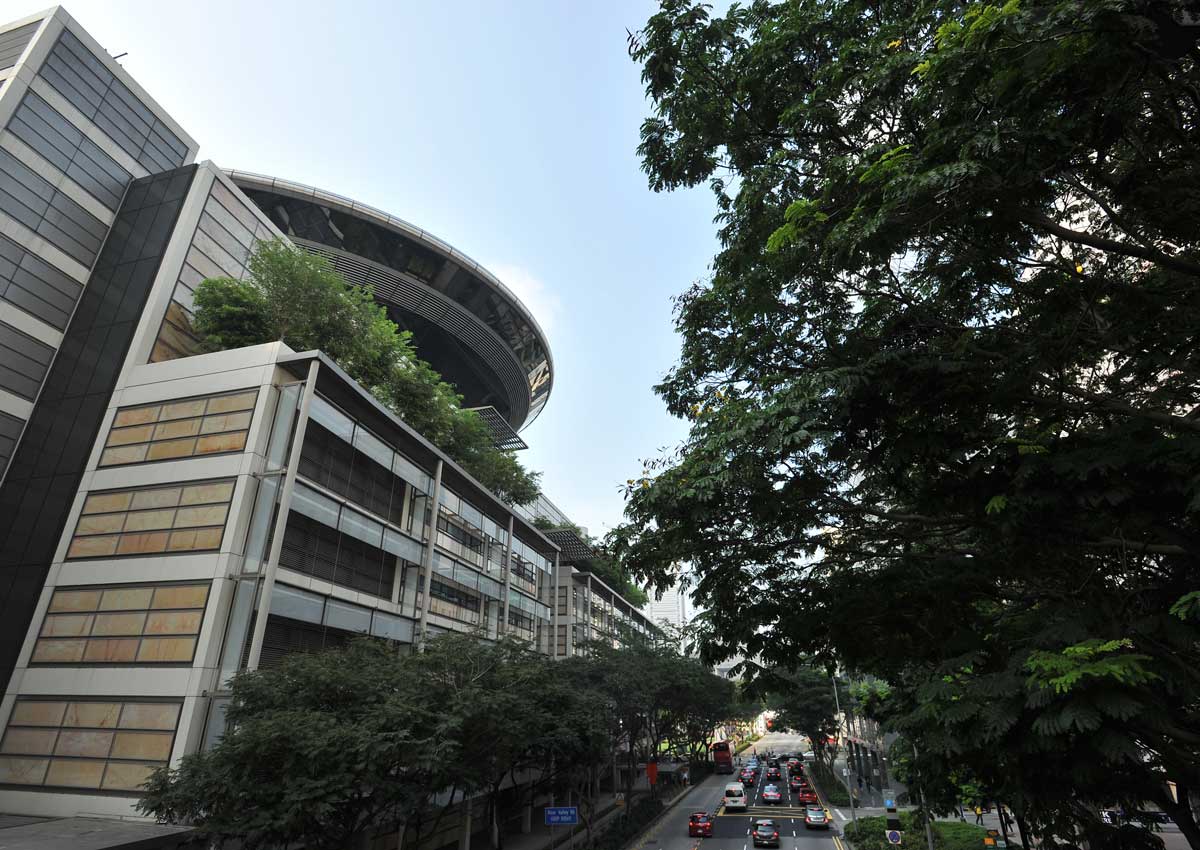A jobless motorist was found to be 80 per cent responsible for a collision that caused $20,000 worth of damage to a Porsche – then was criticised by a judge for making an “inexplicable” late call for a witness.
Mr Justin Chia had been driving his Volkswagen Golf GTI in North Bridge Road outside the Supreme Court building in April 2014 when he collided with a Porsche Panamera.
Its driver, Mr Mohamed Rafin Kadimhad – the chief corporate officer of the Park Hotel Group – sued Mr Chia for the cost of repairs, which both parties agreed to set at $20,000.
However, when it came to liability, each man blamed the other for the lunch-time bump.
Mr Rafin, represented by lawyer Joan Lim, argued that Mr Chia’s vehicle cut into his lane from a bus lane on the left. He braked but could not prevent the collision, which damaged the front left portion of his car and the rear right corner of Mr Chia’s.
Mr Chia countered that Mr Rafin’s Porsche hit the rear of his car as it slowed down behind a cab.
The judge found, among other things, that the damage pattern on Mr Chia’s car was more consistent with Mr Rafin’s version of the accident. After a half-day trial in which he considered other evidence, such as the resting places of the two cars, District Judge Chiah Kok Khun found Mr Chia was 80 per cent to blame. But he held that Mr Rafin also contributed 20 per cent to the accident as he ought to have kept a better lookout to avoid the run-in.
After both parties had made their closing submissions in the case and the judge was ready to deliver his decision, Mr Chia applied to call the security manager of the Supreme Court as a witness in relation to footage that had been caught by the building’s CCTV cameras but had since been overwritten.
In judgment papers released yesterday, the judge explained why he refused the application by Mr Chia’s lawyer, Mr Narayanan Ramasamy. He noted no reason was given as to why the proposed witness was not called earlier to give evidence in the 18 months from the accident date to the trial’s end. He added that the security manager’s evidence would have involved his official duties whereas this was a private dispute and there was no indication whether official clearance had been given for such security-sensitive information to be used in the case.
Judge Chiah explained that the application had to be seen in perspective. “In the context of a claim arising out of a minor road traffic accident and involving the sum of $20,000, from the perspective of proportionality, there is much to be said for the finality of proceedings.
“The answer that the plaintiff could be compensated by costs holds less water in small-value civil cases, where overall costs should be proportional to the value of the claim.” He added that the “proportionality principle” meant the “time and effort expended on a case should be proportional to the value of the claim, the importance of the case and the complexity of issues”.
Additional evidence would have been ” secondary” and “plainly run counter to the sense of proportion”, serving to protract the case.
He noted that in Australia and New Zealand, “the proportionality principle was gaining traction”, while in Singapore it is enshrined in the rules of court that took effect in November 2014 – after this suit commenced.
The judge added: “Allowing the belated application would result in restarting the trial and recalling the witnesses on an adjourned date.”
vijayan@sph.com.sg

This article was first published on Jun 09, 2016.
Get a copy of The Straits Times or go to straitstimes.com for more stories.






